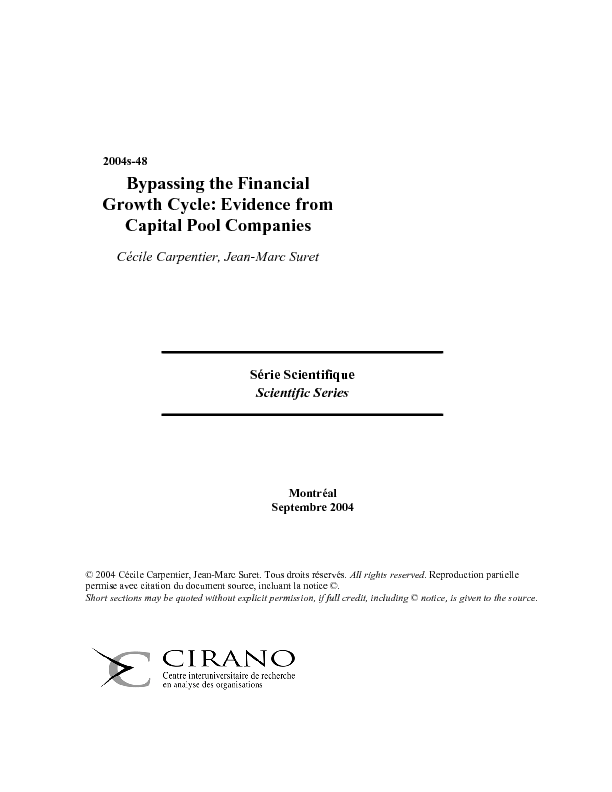Bypassing the Financial Growth Cycle: Evidence from Capital Pool Companies
To close an asserted equity gap, the Canadian regulators implemented the Capital Pool Company program, which enables small firms to directly access the stock market, thus bypassing the conventional growth cycle. Similar to American Blind Pools/Blank-Checks, Capital Pool Companies have spawned more than half of the new issues on Canadian stock markets between 1995 and 2001. Underlying this program, along with several other governmental actions, are three postulates: 1) a significant number of profitable companies cannot be financed using conventional tools, 2) small firms can grow and succeed without the full set of services usually provided by the specialized intermediaries, and 3) individual investors are able to correctly price the stocks issued by small and generally young firms. Our analysis of close to 450 issuers resulting from this program fails to confirm any of these postulates. Companies that access the stock market through this program are of low quality, which is consistent with the adverse selection paradigm. Their abnormally low subsequent operating performance can be traced to the lack of incentive and monitoring tools, along with the lemon principle. Moreover, their market performance is also abnormally poor, confirming that individual investors cannot correctly assess the fair value of new ventures, in a strong asymmetric information context. In terms of public policy, development of mechanisms intended to facilitate the entry of emerging companies on the stock market apparently requires serious reexamination. Our results confirm the essential role played by financial intermediaries in small business finance.
[ - ]




